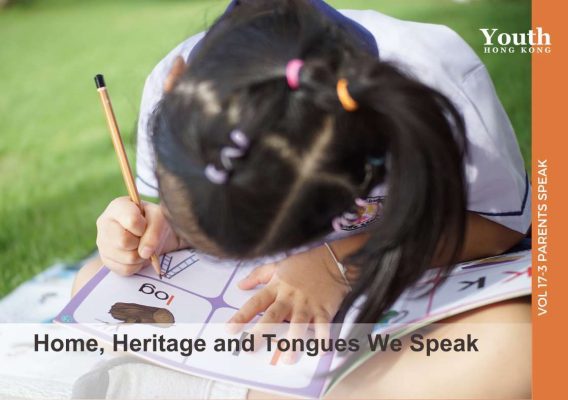Parents share how they nurture their children’s love of languages at home and beyond.
Galina Papakule
I am a Russian-speaking Latvian and only spoke to both my children in Russian at home. Their father only spoke to them in Cantonese, and we spoke English with each other. The reason for this was, we wanted the children to be able to converse in both the languages of their heritage with a degree of fluency, while also being comfortable with either identity. As a result, they were able to interact and communicate in three languages with ease. It made it easy to communicate with both extended families, as well as make friends from different parts of the world.
Both children went to a local school until the end of their primary years. There, they also picked up some Mandarin. They then transferred to an English-medium school, where they both took Spanish as their second language. Both of them excelled, and I wonder if it was because they were already accustomed to thinking and learning in different languages.
My son went on to study medicine in the Czech Republic and picked up enough professional Czech to be able to communicate with his patients. As both Czech and Russian are Slavic languages and have a lot in common, I believe it made it easier for him to learn Czech. My daughter works in Hong Kong and uses her Cantonese, Mandarin and English in her job. At the moment, she is also learning Swedish, as this is the language of her boyfriend, and she would like to communicate with him in his language.
Learning languages is something very important to me, and not just because I am a native-speaking English teacher in a local primary school in Hong Kong. Every day, I see many children struggling with learning English. Some of them are scared or not comfortable speaking not their mother tongue, some of them are just not motivated enough, uninterested and have no clue why they have to learn it.
It’s our job as parents and teachers to explain why it is so important to learn new languages. I believe being able to communicate in different languages provides an opening into different cultures, creates a greater understanding between people and gives more opportunities for a successful future. Besides, the more languages you know, the easier it is to learn the next one!
Bryan
I mainly speak Chinese, mainly Cantonese, with my daughter at home, though we also use English, especially when she shares about her school life and studies. Since moving to the UK, I’ve been giving her Chinese lessons three to four times a week, each lasting half an hour to an hour. We usually read articles from exercise books, and she genuinely enjoys the classes. Additionally, we make weekly video calls with our family. In this way, I’m trying to gently instil in her the idea that Cantonese is an essential language for communication.
I’m worried that once she starts school, she might gradually forget Chinese like other children. Her best friend is from Greece, and her mother told me that she no longer likes speaking Greek after going to school. I think Chinese is such a beautiful language, and I hope my daughter can appreciate not only the words themselves but also the culture expressed through poetry, literature, and songs. Reading and writing have brought so much happiness and fulfilment to my life, and I wish she could enrich her life through Chinese, too. ■


